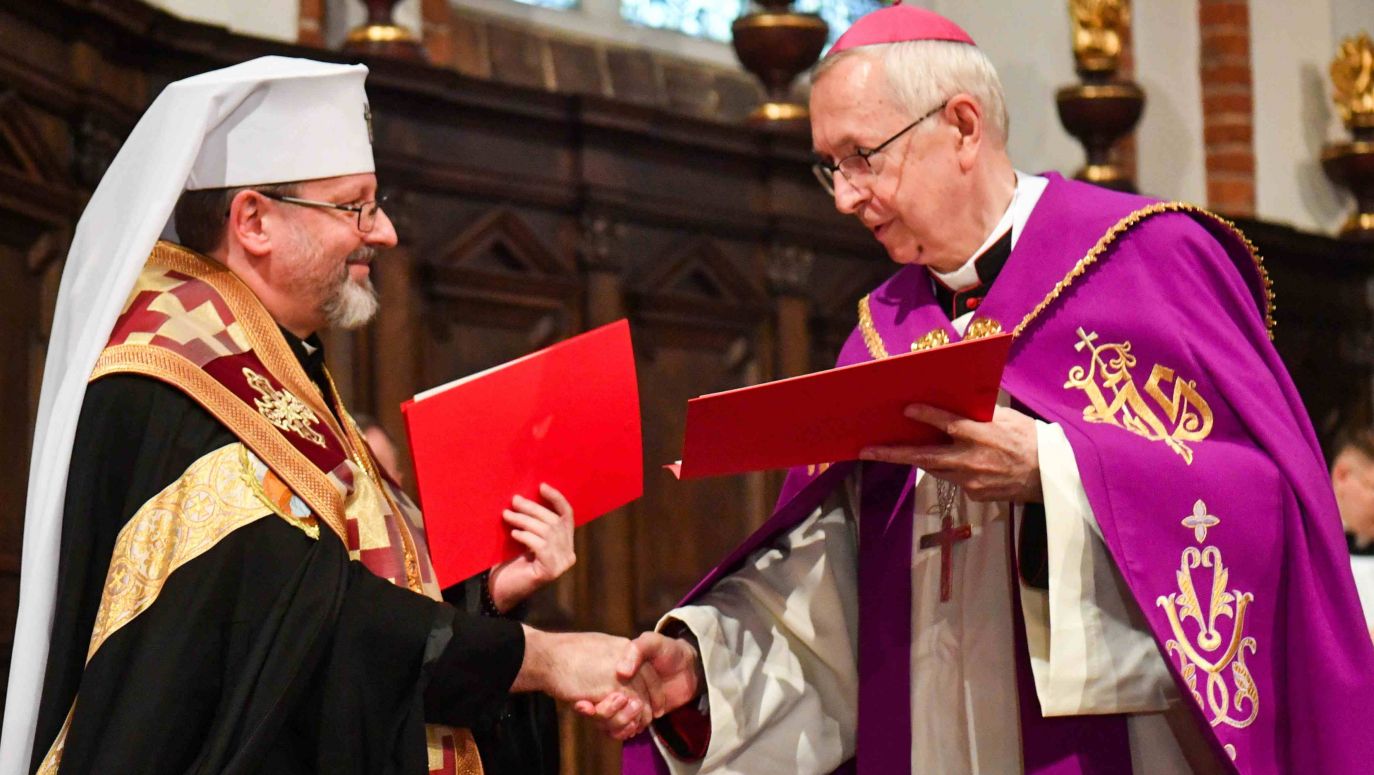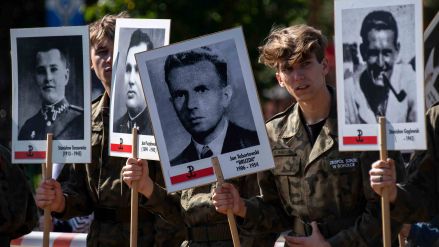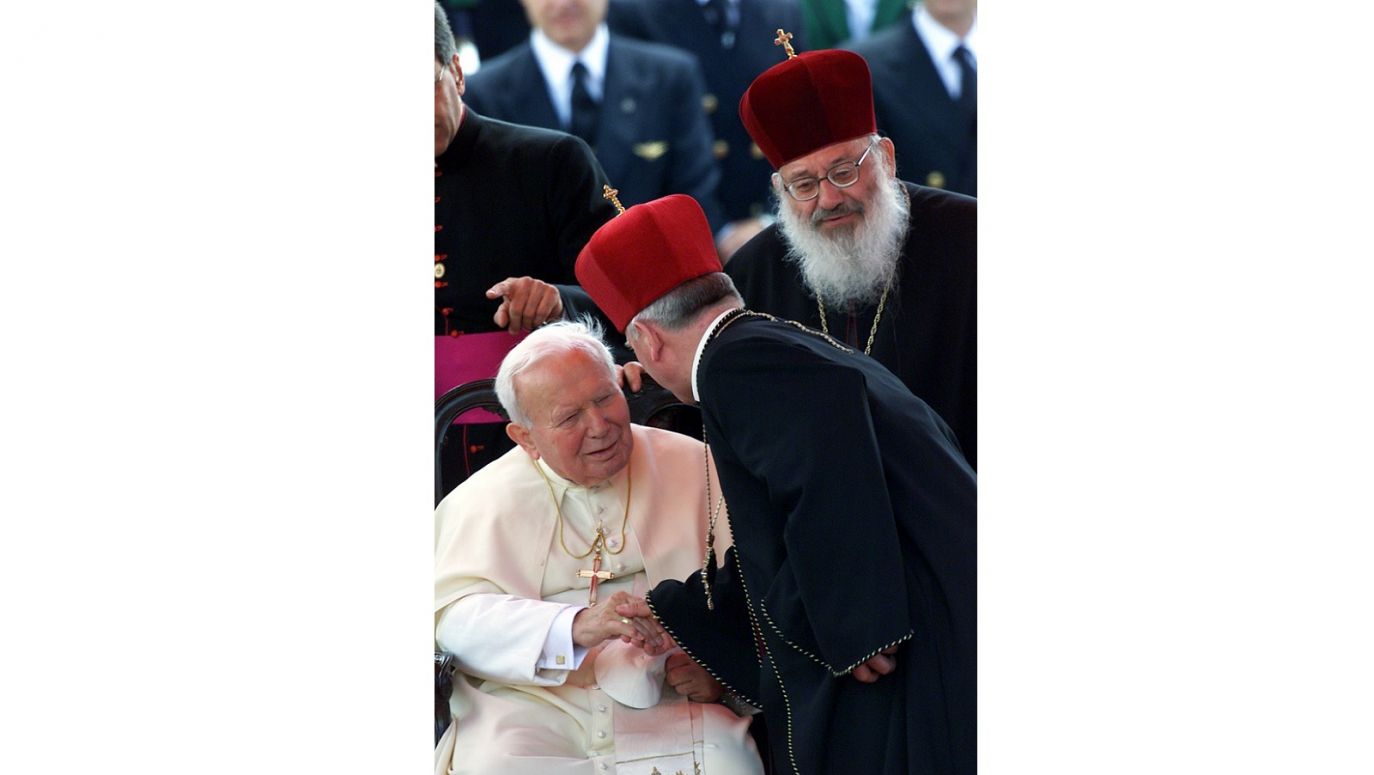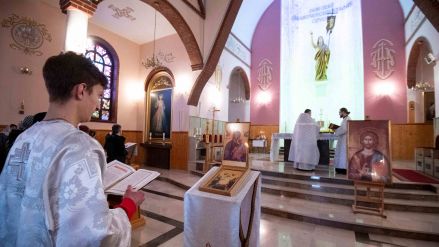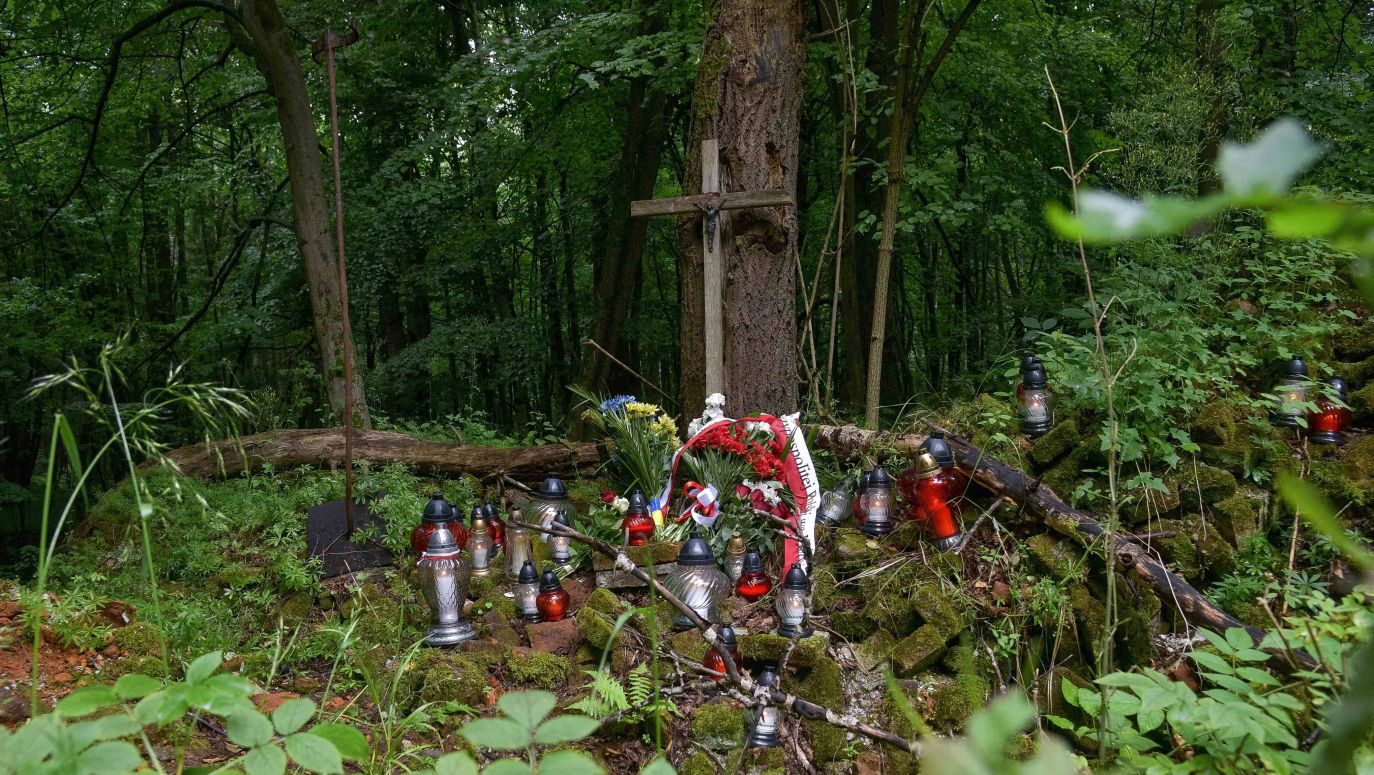“To begin with, I’d like to introduce myself”. I’m a son of Volhynia. I was born is August 1942 in the village of Budy (Verba district, Dubno poviat). The Poles living here were assaulted on April 15, 1943, so three months before the terrible “bloody Sunday”. My parents’ khutor was fortunately situated remotely from the village and this circumstance saved our lives. Namely: a frightened Ukrainian woman, known to us only by sight, came running to us, shouting that we should flee because Poles were being murdered in the village”.
It was with these words that Fr. Jacek Salij, OP opened his sermon in the Łuck Cathedral – but not now, during the recently concluded ceremony commemorating the 80th anniversary of the Volhynia massacre. Fr. Jacek came to Volhynia four years ago, on July 11, 2019 and now his sermon has been recalled, first by “Gość Niedzielny”, then by the Catholic Information Agency (KAI) and perhaps some other media too. It’s not only a testimony – “if it had not been for that anonymous Ukrainian woman, I probably would have ended my life as an eight-month toddler” – but also, as it is in Fr. Salij’s preaching – a profound moral and historical lesson. As well as a call for…?
To call a spade a spade
Archbp. Stanisław Gądecki drew extensively from this words & thoughts of Jacek Salij during the Mass in Parośla, Volhynia, on the second day of a Triduum sui generis – Forgiveness and Reconciliation Pilgrimage to Volhynia. In addition to Archbp. Gądecki, Archbp. Sviatoslav Shevchuk, the head of the Ukrainian Greek Catholic Church (UGCC), and the Bishop of Lutsk, Vitaliy Skomarovski, chairman of the Ukrainian Episcopal Conference, set off on this route. They embarked on it to commemorate the 80th anniversary of the Volhynia massacre. The first service was held in St. John’s Cathedral in Warsaw, where they announced the Message read and signed on Friday by the chairman of the Polish Episcopal Conference, Archbp. Stanisław Gądecki and Archbp. Sviatoslav Shevchuk, head of the UGCC. The last meeting was held at St. Peter and Paul in Lutsk, where they were joined by the Apostolic Nuncio to Ukraine and representatives of the All-Ukrainian Council of Churches and Religious Organisations.
 SIGN UP TO OUR PAGE
SIGN UP TO OUR PAGE

On July 8, Archbp. Gądecki put it bluntly: “we are gathering at the Eucharist in the non-existent village of Parośla, which, before WWII was a Polish settlement comprising 26 homesteads. This place became witness of an atrocious crime, actually the beginning of a genocide. Its dwellers expected no attack, so a sotnya of the Ukrainian Insurgent Army [or unrelated band], passing itself off as a Soviet guerrilla unit entered the village without impediment; after which it positioned guards close to the Polish homesteads. Then the assailants slayed the bound and defenceless villagers with knives and axes, killing 173 people [the figure varies between 115 and 188], including women children and babes. Some say eight, other say five Poles were saved, mostly children [recent research has shown that at least 22 identified Poles survived – trans. note] . The property of the dead was looted and taken away. The village ceased to exist.
The news spread the next day. Poles from the vicinity started coming to the burnt village. They took the wounded to the hospital in Volodymyrets and asked the Germans form Antonivka for help. Under their protection they managed to bury the dead and photograph the victims.
In 1943, the first cross (which doesn’t exist today) was erected here to commemorate the victims. Then, in the forest, in on the site of the former colony, the Ukrainian Anton Kovalchuk erected a memorial cross, informing that the crime was committed by Ukrainian nationalists.
It was the first mass murder perpetrated here against the Polish population on February 9, 1943. It is considered the beginning of the Volhynia massacre [not unanimously – some historians claim it was an isolated action aimed at confiscating weapons, while the massacre itself didn’t begin until the summer of 1943 – trans. note.]”.
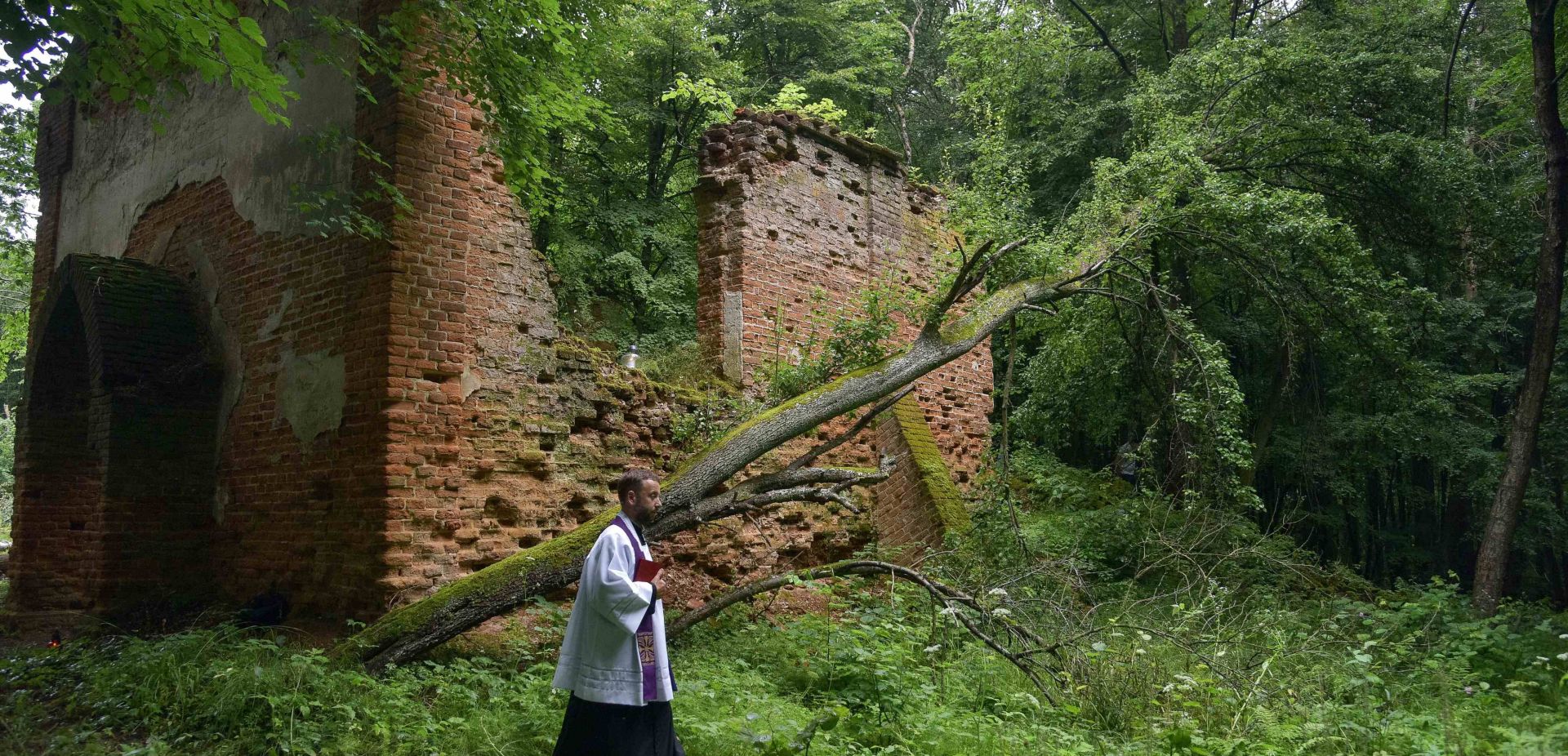
 SIGN UP TO OUR PAGE
SIGN UP TO OUR PAGE
 On July 8, Archbp. Gądecki put it bluntly: “we are gathering at the Eucharist in the non-existent village of Parośla, which, before WWII was a Polish settlement comprising 26 homesteads. This place became witness of an atrocious crime, actually the beginning of a genocide. Its dwellers expected no attack, so a sotnya of the Ukrainian Insurgent Army [or unrelated band], passing itself off as a Soviet guerrilla unit entered the village without impediment; after which it positioned guards close to the Polish homesteads. Then the assailants slayed the bound and defenceless villagers with knives and axes, killing 173 people [the figure varies between 115 and 188], including women children and babes. Some say eight, other say five Poles were saved, mostly children [recent research has shown that at least 22 identified Poles survived – trans. note] . The property of the dead was looted and taken away. The village ceased to exist.
On July 8, Archbp. Gądecki put it bluntly: “we are gathering at the Eucharist in the non-existent village of Parośla, which, before WWII was a Polish settlement comprising 26 homesteads. This place became witness of an atrocious crime, actually the beginning of a genocide. Its dwellers expected no attack, so a sotnya of the Ukrainian Insurgent Army [or unrelated band], passing itself off as a Soviet guerrilla unit entered the village without impediment; after which it positioned guards close to the Polish homesteads. Then the assailants slayed the bound and defenceless villagers with knives and axes, killing 173 people [the figure varies between 115 and 188], including women children and babes. Some say eight, other say five Poles were saved, mostly children [recent research has shown that at least 22 identified Poles survived – trans. note] . The property of the dead was looted and taken away. The village ceased to exist.